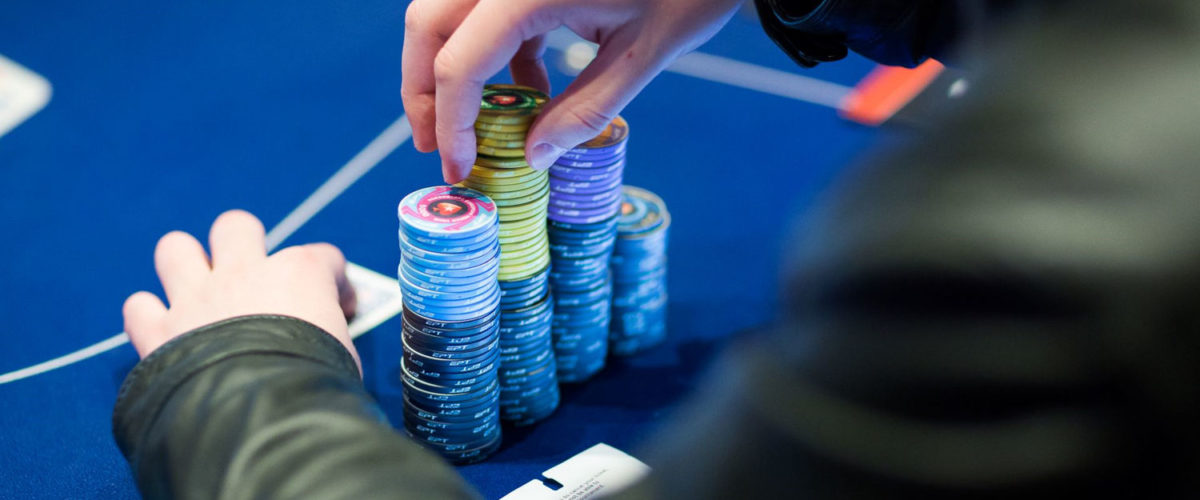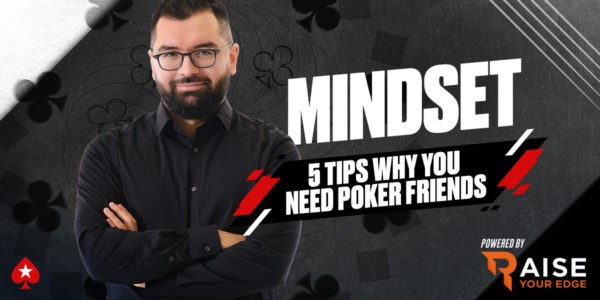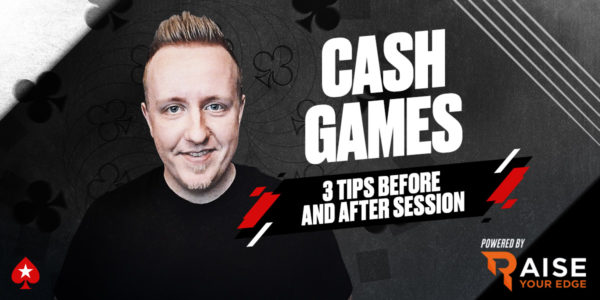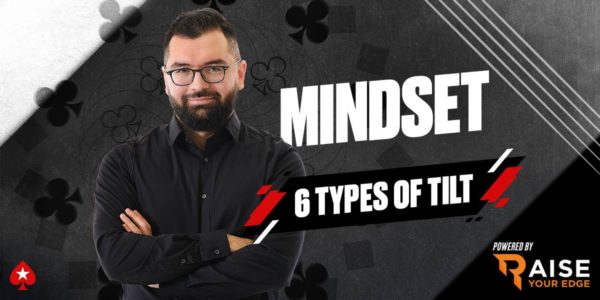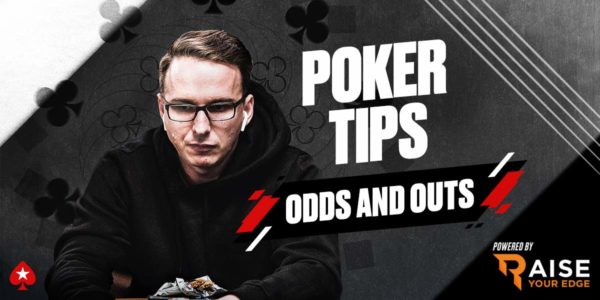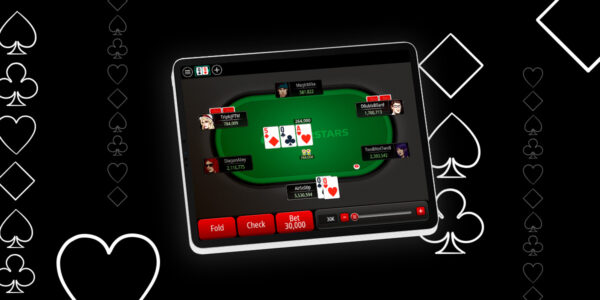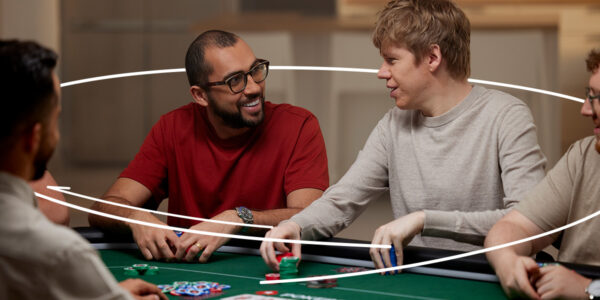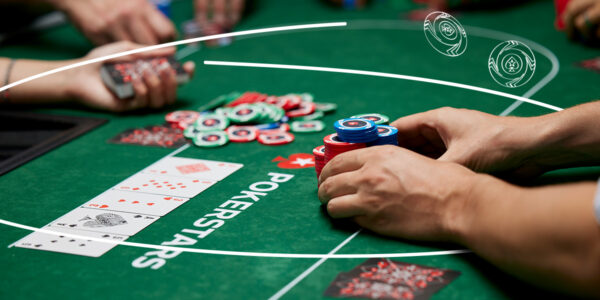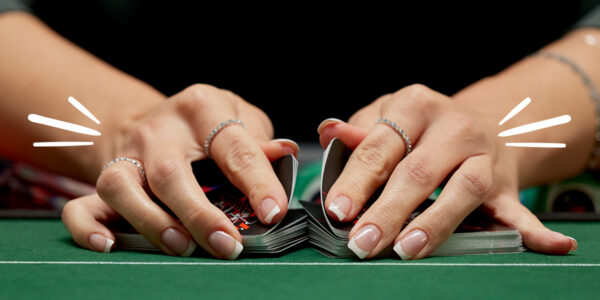C-Betting in 2020 – Part 1
Frequent C-Betting
The theory of continuation-betting (c-betting) has evolved dramatically over the last decade. Gone are the days of simple mantras such as:
‘Bet the flop as a continued display of strength’
And
‘Pre-flop raiser bets here to represent the King’.
In this four-part mini-series, you’ll get a crash course in modern c-betting. Let’s leave the old sayings in the dust and figure out how often and how big to c-bet the flop.
When to C-Bet Frequently
C-Betting frequently means c-betting all of your range or a very large part of it. We might also use the word ‘unselective’ to refer to a c-bet strategy that involves a lot of betting without much scrutiny on how strong your actual hand happens to be.

We typically want to c-bet frequently when our range has a large equity advantage over our opponent’s range.
The main spots where we usually have this aggressor’s range advantage are:
- Playing as the raiser in a single-raised pot against a big blind call.
- Playing as the 3-bettor in a 3-bet pot.
- Playing as the 4-bettor in a 4-bet pot.
In all of these situations, note that our opponent’s range is capped. In other words, there is a limit to how strong his holdings could be. He would have 3-bet the big blind with premium hands in the first case; 4-bet many of his best hands in the second case; and shoved all-in (assuming 100BB starting stacks) in the third case. Meanwhile, our range is uncapped since we can still have the best pre-flop hands in all three cases.
Equal and Unequal Ranges
When your opponent’s range is capped, and the flop is not much help to him, his range is still suffering. Maybe he has around 45% equity, which is pretty low in a heads-up pot. We call this an unequal range situation.
When ranges are equal, the math is very simple. If we c-bet one third of the pot, we are risking one unit to win three. Our unit goes into the pot and constitutes 25% of the new pot (one in four). This means that if we get back ¼ of the pot, we get our chips back. Our bluffs, then, have to succeed 25% of the time for us to break even.
If ranges are equal, Villain can simply fold 25% of his range and cause all of our bluffs to break even. In other words, he will defend around 75% of his range. This is called meeting the minimum defence frequency.

When ranges are unequal, however, the minimum defence frequency is not accurate. Now if Villain tries to defend 75% of the time to our one third pot bet, he will lose much more money in the long run. By making our complete bluffs break even, he increases what he loses against the stronger parts of our range. Game theory suggests that Villain should fold more than the minimum defence frequency suggests in these spots, so he can minimise his losses.
When Villain folds more than the minimum defence frequency suggests we can say he is overfolding. This overfolding is not a mistake – it is forced. Villain is supposed to fold a lot when his range is suffering. Do not confuse forced overfolding due to bad ranges with unforced overfolding (when people play too tight due to a lack of understanding).
Capitalising on Forced Overfolding (Bluffing)
When your opponent is forced to fold so much that your bluffs are automatically profitable, you want to bluff a lot. As long as you keep value betting all of your good hands; the likes of which his range does not even contain; you will force him to fold a lot in the long-run or lose extra money to your good hands. It would not make sense to play your air hands passively in these situations since your range advantage guarantees them so much fold equity. Even your very worst hand is a theoretical money-maker when it bets the flop in situations where your range has a large advantage.
Betting is better than checking for your air hands when you have a big range advantage.
Capitalising on Overfolding (Protection-Betting)
Remember, when your range is pushing a large equity advantage, Villain has to fold more than the math suggests if ranges were equal. Your rotten garbage is not the only type of hand that benefits from the increased fold equity generated by all the muscle hands in your range. Medium strength vulnerable hands also increase their EV by betting and folding our worse hands that can suck-out quite easily.
Small and medium pairs and strong ace and king-highs are prime examples of these hands. They are not value-betting because they don’t often get called by worse, however, the folds they get are very profitable because they secure the whole pot from worse hands like overcards and gutshots, which would frequently suck-out if given the chance.
Important: We do not expect Villain to fold hands as good as flush draws. These have high equity so we are not expecting to get protection from these hands by betting a pair or ace-high.

Example
We open UTG in a 6-max cash game for 2.5BB and get called by the big blind. We go heads up to a flop of A♦9♠2♣. This is a classic high range advantage spot for us. There are two main reasons why our range has far more equity than Villain’s.
- We have more of the very best pairs like AQ and AK
- We have more of the tier 2 paired hands like [KK QQ JJ]
- We have far less trash diluting our range. Villain can easily have lots of 75s and Q8s due to pot odds. We do not open these.
This is a great spot to have a high betting frequency. We could even bet everything in our range if we wanted – known as a range-bet – but here are three examples of the weaker hands in our range which benefit the most from betting.
Bluff – Q♥J♥ wants to bet because it gets much more fold equity than normal due to the unequal ranges.
Protection/Bluff – 6♠6♥ wants to be because it folds out many worse hands with decent equity against it and maybe even some better hands like 7♣7♦.
Protection/Value – 10♣10♠ wants to bet because it can both get called by some worse hands (9x) and fold out other worse hands with lots of equity vs. it (KQ).
Summary
- Pre-flop raisers have range advantage over callers in most situations.
- Range disadvantage causes our opponents to have to fold more often than if ranges were equal.
- We should take advantage of extra fold equity by betting very often. In doing so, many of our weak hands will benefit from bluffing, or from protection, or both.
Condimentum Nibh
Donec sed odio dui. Cras mattis consectetur purus sit amet fermentum. Vestibulum id ligula porta felis euismod semper. Curabitur blandit tempus porttitor.

